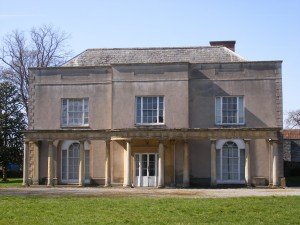No one can deny the allure of France as one of the top real estate destinations. Offering a stable and mature economy, enticing landscapes, an agreeable climate, strong social and transport infrastructure, high quality of service and legendary cuisine, it is not hard to see why. Côte dAzur, Paris and the French Alps are the most attractive locations for property buyers. Tempted? Explore a wide selection of French property listings, among the other 130 thousand homes, apartments, penthouses, townhouses and lofts advertised globally, on the official website of large real estate broker Tranio.
As the majority of property prices in France tend to rise annually, commercial real estate is also worth investigating. See the listings of office spaces, hotels, shopping malls, stores, senior apartments and tourist complexes on Tranio.com. There you will find support at all the stages of your transaction, providing you with a direct link to the local property agencies and private owners in the region you choose – and most importantly, Tranio does not charge you any commission.
Epitome of stability
Despite the uncertainties of the global economy, French real estate investments are the epitome of stability. Most of the leading economists entirely rule out a collapse in this market. Less than a quarter of the properties are bought for investment, so the real estate industry performs well, kept afloat with good liquidity. Supporting these real estate investments are stringent laws and well-balanced lending policies pursued by the banks. Those chicest apartments in central Paris and chateaus on the Cote d’Azur may test the budget of everyone except Middle East Sheikhs and the most affluent global citizens, yet France’s sophisticated and customised lending system keeps attracting investors with rather more modest capital.
French Mortgage Rules
So, let’s look more closely at these French mortgage rules. They remain amongst the most lenient in Europe; the mortgage rate is capped at 5% per annum and the banks are allowed to lend to non-residents. Downpayments should be 30% of the property value while the mortgage term can be from 6 to 20 years. A long-term loan requires the borrower to have life insurance to protect against longevity contingency. French law spells out that loan interest expenses are deductible from any taxable rental income.
Investors who fancy an apartment in Paris should expect prices of more than 10 thousand EUR/sq.m. Saint-Germain-des-Prés, Champs-Élysées, Saint-Thomas-DAquin and Odéon areas are the most expensive. Meanwhile, a studio in Paris might cost from EUR 500 thousand whereas a luxury downtown apartment can be up to EUR 5–6 million.
Côte dAzur
Away from the bustle of the nation’s capital, the Côte dAzur is also much sought-after. Apartments go for an average of 5-6 thousand EUR/sq.m with Saint-Jean-Cap-Ferrat and Saint-Tropez at the top end at over 11 thousand EUR/sq.m and 8,5 thousand EUR/sq.m respectively. Villas at the swankiest resorts cost more than EUR 1 million on average, yet there are spots with cheaper homes and apartments such as Cap-dAil, Menton and Fréjus.
Heading towards the French Alps, apartments and chalets, are attractive investments. Apartments and homes in Courchevel are the most expensive, sold for 7–11 thousand EUR/sq.m on average. Ski resort property in Val-dIsère, Méribel, Tignes and Megeve is also rather costly.
Montepellier
France’s property market, though, has treasures to offer beyond its most famous regions. Montpellier in the Languedoc-Roussillon region, for one, has a long and eventful history and is home to one of the best national universities. Prices here are much lower than on the Côte dAzur, yet property is no less prestigious. Whether you have the nose for a good investment or of a wine connoisseur, you are likely to be interested in the vineyards of Bordeaux, Burgundy, Champaign and the Loire Valley. All offer attractive investment opportunities.
French real estate investments are subject to the following taxes and charges:
• A notarys fee of about 1% of the transaction sum.
• French property tax of 6–7% on existing housing prices and 2–3% on new housing prices. New houses are VATable at 19.6%. The VAT is generally included in the final price.
• Compulsory insurance coverage calculated by location, area and the specific features of the property.
• PIT at 20% on the rental income for foreigners.
• Capital Gains Tax (19% for non-residents) to be paid by the owner selling a second home, which isn’t used as a primary home. Such transactions have been subject to tax rebates since 1 September 2013: now a seller owning their second home in France for more than 6 years is eligible for a 6% tax rebate eligible for a 6% tax rebate for each year of ownership. Therefore, if the holding period for a property other than a primary home is over 22 years, the Capital Gains Tax rebate is 100%.
• All investment income earned in France, notably rental income and income from selling a second home in France received by a non-resident, are liable to the ‘social charge’ (prélèvements sociaux) of 15.5%.
• French wealth tax of 0.5–1.5% of net wealth that exceeds EUR 1.3 million.
The appeal to investors is obvious: the security of the stable French economy, strict real estate regulations and affordable mortgages for both residents and non-residents, all give the green light to profitable returns. So, if you have long-dreamed of a slice of the French property market, now is the perfect moment to make your move.
- Rental Market Sees Surge in Tenant Inquiries - May 2, 2024
- Rental Crisis: Less Than Half of Homes Ready - April 30, 2024
- Thinking Of Buying A Ground Floor Flat? Common Issues You Might Face - April 30, 2024



